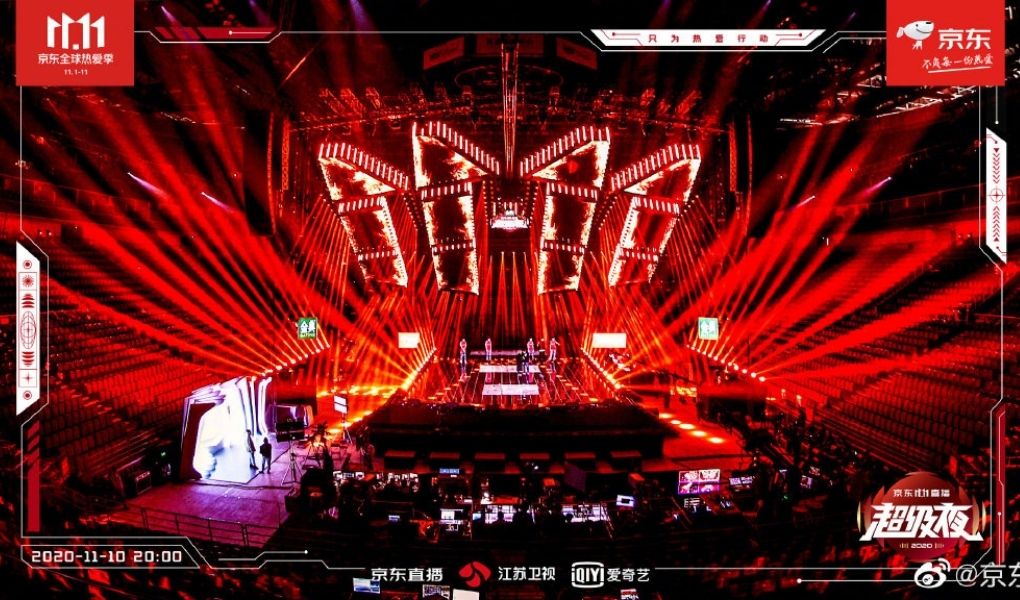The Phenomenon of 11.11 in China’s E-Commerce
The 11.11 Shopping Festival, often referred to as Singles’ Day, has evolved into the largest online shopping event worldwide. Originally designed to celebrate singlehood in China, it has now become a major retail event, offering unparalleled opportunities for both domestic and international brands. Each year, millions of consumers participate in this digital shopping extravaganza, seeking discounts and exclusive products. For businesses looking to break into eCommerce China or enhance their presence, the 11.11 Festival provides a critical platform to boost sales and improve China branding.
In this article, we will explore how brands can capitalize on the 11.11 Shopping Festival through China brand localization, social media engagement, and partnerships with China influencers. Understanding these strategies and adapting to local consumer trends is essential for achieving success in the world’s most dynamic retail market.
The Origins and Evolution of the 11.11 Shopping Festival
The 11.11 Shopping Festival originated from China’s Singles’ Day, an informal holiday celebrated on November 11, symbolizing singlehood with the repeated number ‘1’. The real turning point came in 2009 when Alibaba transformed this day into a massive commercial event through its Tmall platform, focusing on large-scale discounts and promotions. Since then, the festival has grown exponentially, with over $139 billion in sales generated in 2021, making it the largest online shopping event in history.
This retail event now stretches into multi-week campaigns, involving millions of brands and leveraging cutting-edge digital marketing techniques. For international businesses, especially those looking to establish a China brand website or enter the market through Tmall cross-border, the 11.11 Festival represents a golden opportunity.
The Role of E-Commerce Platforms in the 11.11 Festival
The success of the 11.11 Shopping Festival is largely driven by China’s dominant eCommerce platforms like Tmall and JD.com. These platforms provide the infrastructure for the event while also leading marketing campaigns that define the festival’s impact.
- Tmall: As a premium marketplace under Alibaba, Tmall hosts pre-sales, live-streaming events, and interactive shopping experiences that attract both local and international brands. Brands utilizing Tmall cross-border services can access millions of Chinese consumers without requiring a physical presence in China.

- JD.com: JD.com is another key player, known for its focus on logistics and fast delivery. It is particularly attractive for electronics and consumer goods during the 11.11 Festival, ensuring that buyers receive their orders quickly, further boosting brand loyalty.

The role of these platforms is crucial, as they bridge the gap between international brands and Chinese consumers, facilitating seamless e-commerce transactions during the shopping festival.
Effective Marketing Strategies for 11.11 in China
To succeed during the 11.11 Shopping Festival, brands need to implement targeted marketing strategies that resonate with local consumers. Simply offering discounts is not enough—brands must create engaging experiences that capture attention. Some of the most effective strategies include:
a) Leveraging Chinese Social Media for Brand Awareness
With over 80% of Chinese consumers actively using social media, platforms like WeChat, Weibo, Douyin (China’s TikTok), and Little Red Book (Xiaohongshu) play pivotal roles in shaping purchasing decisions. China social media platforms allow brands to create engaging, interactive content that builds anticipation ahead of the festival.
- WeChat: This super-app offers integrated shopping features like WeChat stores and mini-programs that not only promote products but also allow consumers to purchase directly through the app. Wechat marketing helps brands connect with over a billion users and enhances their chances of success during the 11.11 Festival.
- Douyin: Known for its viral short-form videos, China Douyin allows brands to engage consumers through creative, visually appealing content, often with the help of influencer partnerships. Leveraging Douyin cross-border services can help foreign brands reach the massive Chinese audience on this popular platform.
By integrating social media strategies with a focus on China performance marketing, brands can drive traffic to their e-commerce stores on platforms like Tmall or JD.com and ensure their offerings are top-of-mind for Chinese consumers.
b) Partnering with Key Opinion Leaders (KOLs) for Greater Impact
Influencer marketing, or KOL marketing, is one of the most powerful tools for brands looking to expand their reach during the 11.11 Festival. Collaborating with China KOLs—Key Opinion Leaders—who have strong followings can significantly amplify a brand’s visibility and credibility.
China influencers have the trust of their followers, making their endorsements highly effective. For instance, fashion brands can partner with lifestyle influencers on Little Red Book, while tech companies may collaborate with gadget reviewers on platforms like Weibo.
Working with KOLs allows brands to tap into targeted audiences, driving sales and enhancing brand loyalty. Choosing the right KOLs who align with the brand’s values and target demographics is essential to maximize the impact of these partnerships.
c) Exclusive Product Launches and Event-Specific Discounts
During the 11.11 Festival, brands that offer limited-time or exclusive product launches see higher consumer interest. Chinese shoppers look for unique, event-specific products that create a sense of urgency. Luxury brands such as Valentino and Burberry, for example, have successfully launched exclusive collections during 11.11, driving both sales and brand prestige.
Offering China brand localization—such as festival-themed packaging or collaborations with local designers—can make products even more appealing to Chinese consumers. This strategy builds a sense of exclusivity, which in turn fuels engagement and encourages purchases.
d) Live-Streaming: The Future of E-Commerce in China
China livestreaming has become an integral part of the 11.11 Shopping Festival, offering brands a unique way to interact with consumers in real time. Platforms like Taobao Live have revolutionized e-commerce by enabling brands to showcase products, answer questions, and offer exclusive deals during live broadcasts.
Popular livestreamers like Li Jiaqi, known as the “Lipstick King,” have demonstrated the immense power of live-streaming by generating billions in sales during a single event. Brands that invest in live-streaming not only increase their engagement but also drive immediate sales, benefiting from the excitement of the shopping festival.
Live-streaming has proven to be one of the most effective ways to connect with consumers in China’s fast-paced e-commerce environment, and brands that embrace this trend stand to gain significantly.
Understanding Consumer Trends in the 11.11 Festival
To capitalize on the opportunities presented by the 11.11 Shopping Festival, brands must understand the evolving consumer trends driving purchases. These include:
a) The Growth of Gamification
Gamification has become a key trend during 11.11, with many platforms incorporating game-like mechanics to engage users. From virtual treasure hunts to interactive games that unlock special discounts, these features keep consumers engaged and boost participation during the shopping festival.
b) The Rise of Sustainable Shopping
Younger Chinese consumers are increasingly prioritizing sustainability. Many brands have responded by offering eco-friendly products and green initiatives during the 11.11 Festival. Embracing sustainable practices not only aligns with consumer preferences but also builds long-term brand loyalty in the Chinese market.
Opportunities for International Brands in 11.11
The 11.11 Shopping Festival presents enormous opportunities for international brands, particularly those looking to establish a foothold in eCommerce China. In 2020, over 31,000 overseas brands from 84 countries participated in the festival. For businesses looking to take advantage of this market, two critical considerations are:
- Localization of content: Brands need to tailor their messages to the Chinese market, ensuring that marketing materials reflect local cultural preferences and nuances.
- Utilizing cross-border e-commerce platforms: Platforms like Tmall Global and JD Worldwide facilitate China cross-border transactions, allowing international brands to reach Chinese consumers without requiring a physical presence in the country.
Unlocking the Potential of the 11.11 Shopping Festival
The 11.11 Shopping Festival represents more than just a day of discounts—it’s a strategic opportunity for brands to engage millions of consumers, boost brand visibility, and drive substantial sales in eCommerce China. By leveraging China social media, collaborating with China KOLs, offering exclusive product launches, and investing in China livestreaming, brands can position themselves for success in this highly competitive market.
Understanding and adapting to Chinese consumer trends, such as the rise of sustainable shopping and gamification, are key to maximizing the potential rewards of this global shopping event.



